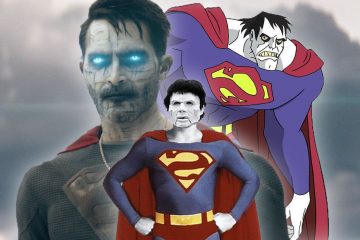While Mike Flanagan has created original stories like Absentia and Midnight Mass, many of his most famous works are his adaptations of other novels and short stories, like his most recent The Fall of the House of Usher miniseries. In Flanagan’s adaptations, he does not shy away from making changes to the original text. This willingness to adapt and change classic works to fit more modern stories strengthens his works and the themes he chooses to explore.Charles Brockden Brown’s Wieland; or The Transformation: An American Tale, first published in 1798, is a lesser known American classic that would mesh well with Flanagan’s other adaptations. The novel focuses on explorations of complicated family dynamics, trauma and grief as seen in most of Flanagan’s work. Wieland in all its imperfections also leaves room for Flanagan to make creative changes to make the story fit whatever era he chooses.Most of Mike Flanagan’s works focus on complicated family dynamics and the effects of grief, a common theme in many modern horror movies. Wieland provides the perfect opportunity for him to explore these themes further. Wieland is considered one of the United States’ first gothic novels. It features an isolated setting, a morally gray ventriloquist named Carwin and random spontaneous combustion ascribed to spiritual retribution early on. Wieland is an epistolary work in which Clara Wieland writes letters trying to make sense of a tragedy that has befallen her family: her brother Theodore murdered his wife, his children and his ward.The Key to The Fall of the House of Usher is Hiding in Plain Sight
While Mike Flanagan has created original stories like Absentia and Midnight Mass, many of his most famous works are his adaptations of other novels and short stories, like his most recent The Fall of the House of Usher miniseries. In Flanagan’s adaptations, he does not shy away from making changes to the original text. This willingness to adapt and change classic works to fit more modern stories strengthens his works and the themes he chooses to explore.
Charles Brockden Brown’s Wieland; or The Transformation: An American Tale, first published in 1798, is a lesser known American classic that would mesh well with Flanagan’s other adaptations. The novel focuses on explorations of complicated family dynamics, trauma and grief as seen in most of Flanagan’s work. Wieland in all its imperfections also leaves room for Flanagan to make creative changes to make the story fit whatever era he chooses.
Most of Mike Flanagan’s works focus on complicated family dynamics and the effects of grief, a common theme in many modern horror movies. Wieland provides the perfect opportunity for him to explore these themes further. Wieland is considered one of the United States’ first gothic novels. It features an isolated setting, a morally gray ventriloquist named Carwin and random spontaneous combustion ascribed to spiritual retribution early on. Wieland is an epistolary work in which Clara Wieland writes letters trying to make sense of a tragedy that has befallen her family: her brother Theodore murdered his wife, his children and his ward.
#American #Classic #Begging #Mike #Flanagan #Horror #Adaptation
Note:- (Not all news on the site expresses the point of view of the site, but we transmit this news automatically and translate it through programmatic technology on the site and not from a human editor. The content is auto-generated from a syndicated feed.))



